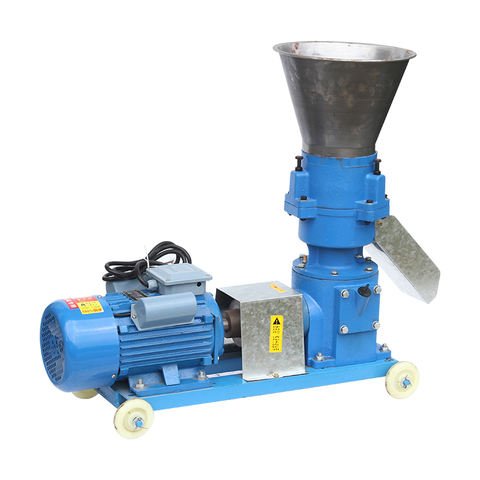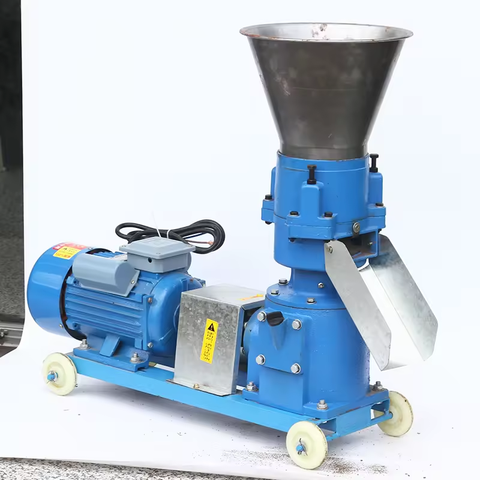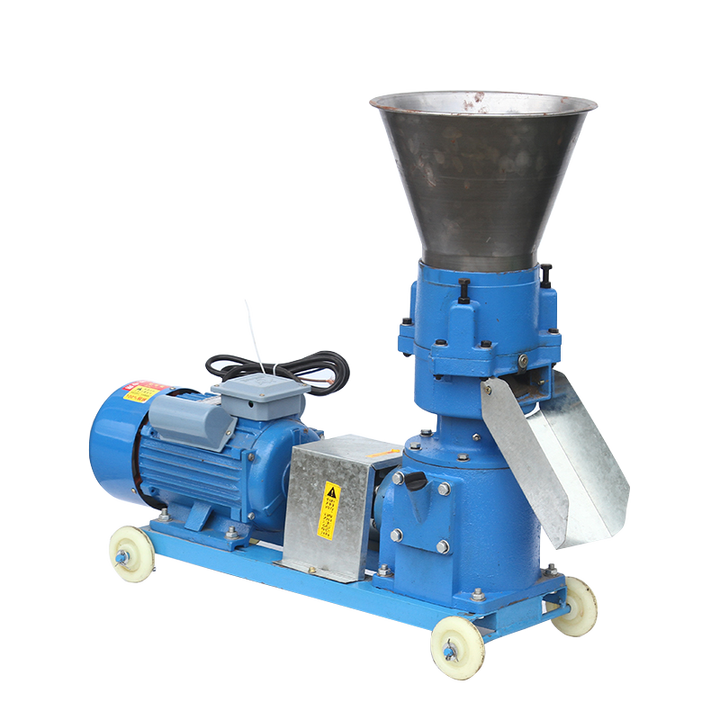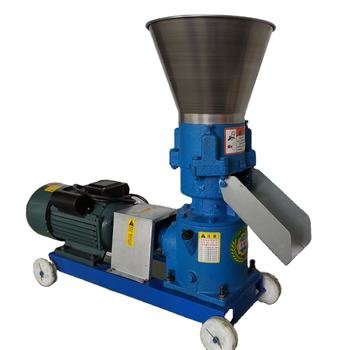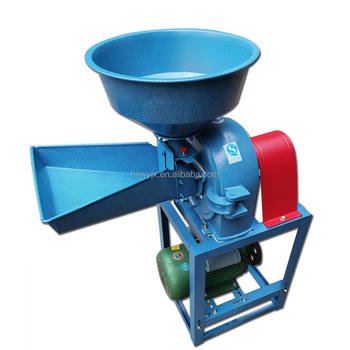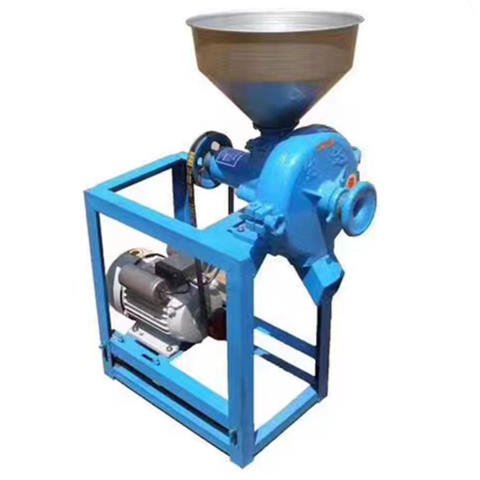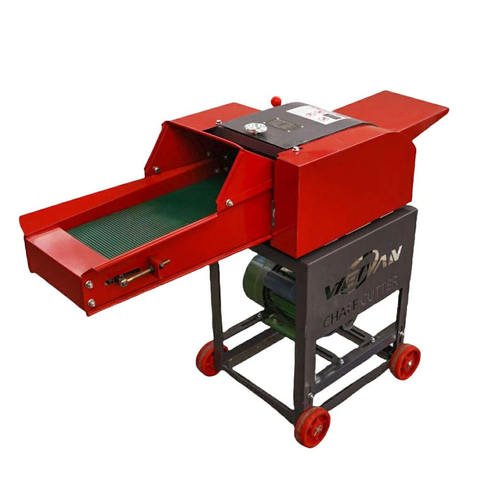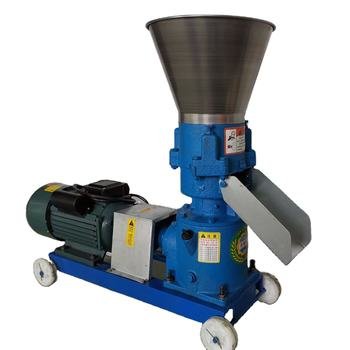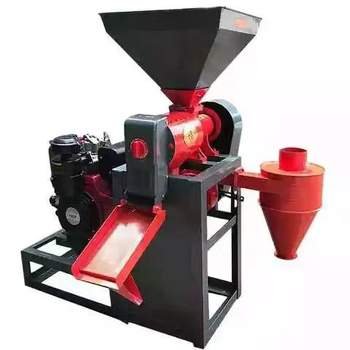pelleting machine price in nigeria ,animal feed pellet machine
Best Poultry Feed Pellet Machine in Nigeria – MAIKONG 20+ Years Expert Guide
CATEGORY AND TAGS:pelleting machine price in nigeria, animal feed pellet machine, feed pellet machine, feed pellet making machine, pellet machine enquiry
- Specifications
- Machine Accessories
- Technical Specifications
1. Why Nigerian Farmers Need Poultry Feed Pellet Machines?
Nigerian poultry farmers face many challenges in feed production, from high costs to poor-quality feed. Traditional methods like manual mixing and wet mash feeding lead to waste, inconsistent nutrition, and higher expenses. Our MAIKONG poultry feed pellet machines solve these problems by turning raw ingredients into uniform, high-quality pellets.
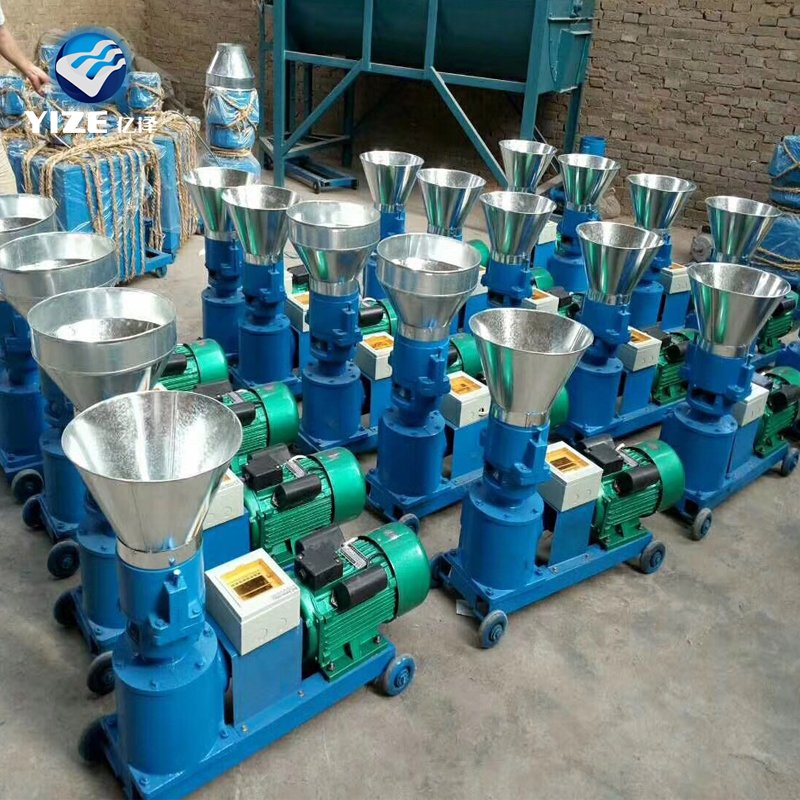
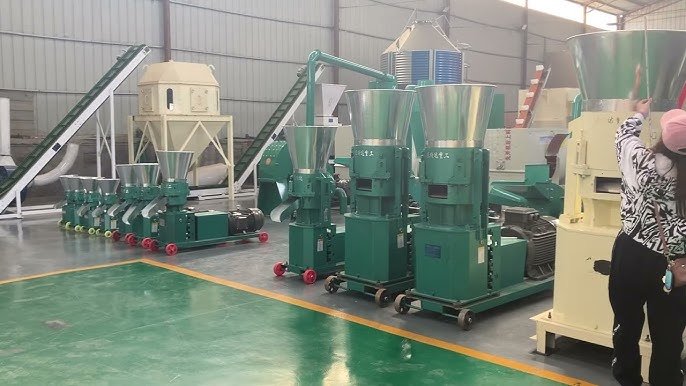
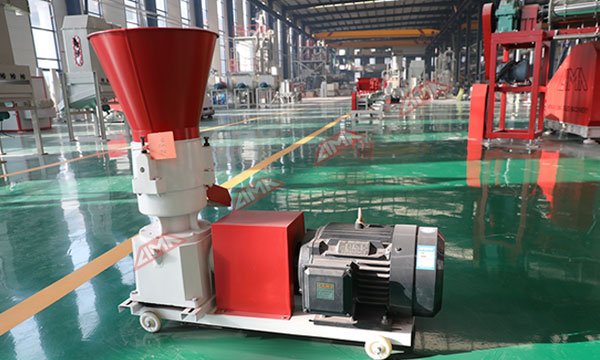
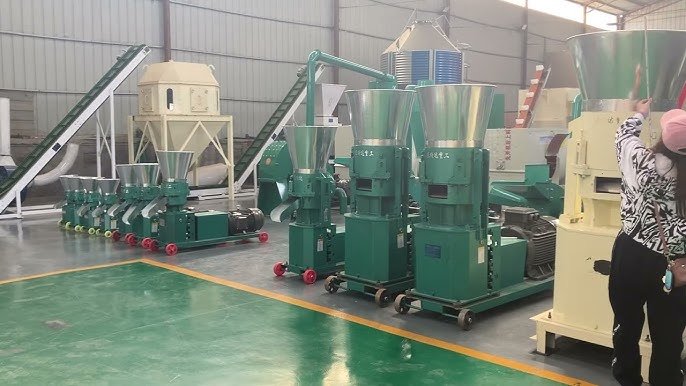
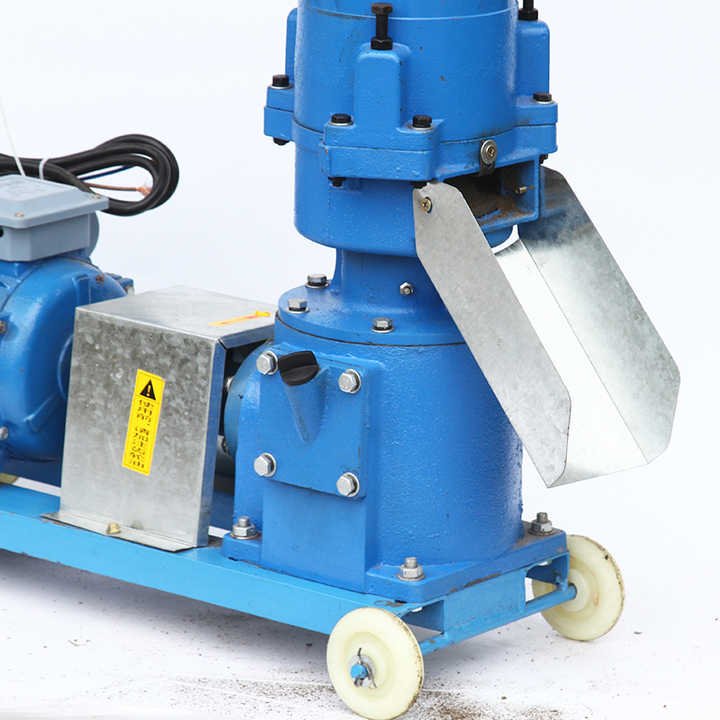
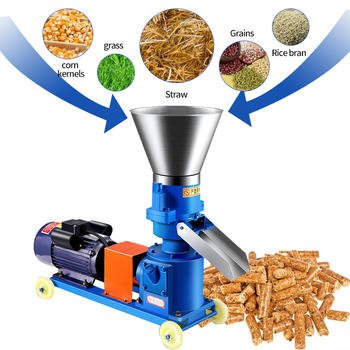
Below is a detailed comparison of traditional feed methods vs. pellet machines in Nigeria:
| Challenge | Traditional Feed Methods | MAIKONG Pellet Machine Solution |
|---|---|---|
| Feed Cost | High cost due to buying commercial feed or inefficient manual mixing. | Lower cost by using local ingredients (maize, soya, fishmeal) to make pellets. |
| Feed Wastage | Birds scatter wet mash, leading to 20-30% loss. | Pellets reduce waste to less than 5%—birds eat everything. |
| Nutrition Control | Unbalanced feed due to poor mixing; birds grow slowly. | Uniform pellets ensure balanced protein, vitamins, and minerals for faster growth. |
| Labor & Time | Manual mixing takes hours; requires many workers. | Automated pellet production saves time—just load ingredients and press start. |
| Storage & Spoilage | Wet feed spoils quickly, attracting mold and bacteria. | Dry pellets last 6+ months without spoilage, even in humid weather. |
| Scalability | Difficult to expand—manual methods can’t handle large flocks. | Our machines produce 100kg to 5 tons/hour, perfect for small farms and big poultry businesses. |
| Bird Health | Poor digestion from uneven feed; higher disease risk. | Pellets improve digestion, reduce sickness, and boost weight gain. |
| Fuel & Power Needs | No solution—depends on expensive diesel or unstable electricity. | We offer electric, diesel, and petrol models to suit any farm’s power situation. |
With MAIKONG machines, Nigerian farmers save money, reduce waste, and grow healthier birds faster.
2. MAIKONG’s 20+ Years Expertise in Nigeria’s Feed Industry
We understand Nigeria’s poultry industry because we’ve worked here for over 20 years. Our factory has supplied machines to farms in Lagos, Kano, Port Harcourt, and Abuja, helping them cut costs and increase profits. Unlike foreign brands that don’t adapt to local conditions, we design machines specifically for Nigerian weather, power issues, and feed ingredients.
Our engineers visit farms to test different raw materials (like cassava, palm kernel cake, and local grains) and adjust machine settings for the best pellet quality. We also train farmers on maintenance, troubleshooting, and optimizing feed formulas. Whether you run a small backyard farm or a large commercial poultry business, we have the right machine for you.
3. How Our Pellet Machines Solve Nigeria’s Feed Problems
Nigerian farmers struggle with poor feed quality, high waste, and machine breakdowns. Our MAIKONG pellet machines fix these issues:
- Poor Feed Quality? Our machines compress ingredients into hard, uniform pellets that won’t crumble. This ensures every bird gets the same nutrition.
- Too Much Waste? Wet mash scatters, but pellets stay intact—saving up to 25% feed costs.
- Frequent Breakdowns? We use heavy-duty alloy steel dies and rollers that last 5x longer than cheap models.
- No Electricity? Our diesel and petrol models work even in rural areas with no stable power.
- Hard to Operate? Simple controls—just fill, press start, and collect pellets. No technical skills needed.
We’ve helped over 1,000 Nigerian farms improve feed efficiency. Our machines are built tough for Africa’s harsh conditions.
4. Key Features of MAIKONG Poultry Feed Pellet Machines
Our machines are designed for Nigerian farmers who need reliability and efficiency. Here’s what makes them stand out:
| Feature | MAIKONG Advantage | Why It Matters for Nigerian Farmers |
|---|---|---|
| High Efficiency | Produces 100kg to 5 tons/hour—scalable for any farm size. | Grow your business without buying multiple machines. |
| Low Power Consumption | Electric models use less than 7.5kW—saves on diesel/electricity bills. | Cuts operating costs, especially with Nigeria’s high fuel prices. |
| Durable Construction | Alloy steel dies & rollers—last 5+ years even with daily use. | No frequent replacements—saves money long-term. |
| Multi-Fuel Options | Choose electric, diesel, or petrol—works anywhere in Nigeria. | No worries about power outages in rural areas. |
| Easy Maintenance | Simple design—farmers can clean and grease parts themselves. | No need for expensive technicians—just follow our manual. |
| Adjustable Pellet Size | Change dies to make 2mm to 8mm pellets for chicks, layers, or broilers. | One machine for all poultry stages—no extra costs. |
| Low Noise & Vibration | Smooth operation—won’t disturb workers or animals. | Comfortable for long working hours. |
| 12-Month Warranty | Free repairs/replacements if any issues arise. | Peace of mind—we stand by our products. |
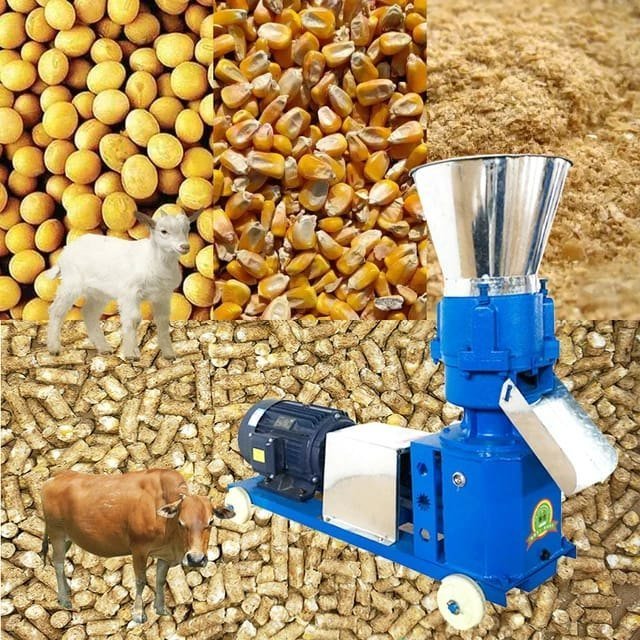
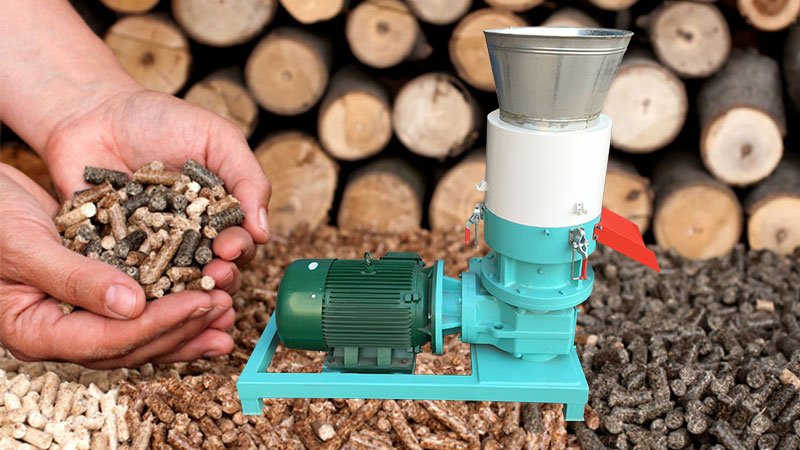
5. Comparing Electric vs. Diesel Pellet Machines – Which Suits Your Farm?
Choosing between electric and diesel pellet machines depends on your farm’s location, power supply, and budget. Below is a detailed comparison to help Nigerian farmers make the right decision:
| Factor | Electric Pellet Machine | Diesel Pellet Machine | Best For |
|---|---|---|---|
| Power Source | Requires stable electricity (220V/380V) | Runs on diesel fuel | Rural areas with no stable power (diesel) / Urban farms with electricity (electric) |
| Operating Cost | Lower long-term cost (cheaper than diesel) | Higher fuel expenses, but no electricity bills | Farmers looking to cut costs (electric) / Those without grid access (diesel) |
| Production Capacity | 100kg – 2 tons/hour (ideal for small-medium farms) | 500kg – 5 tons/hour (suits large-scale farms) | Small farms (electric) / Commercial poultry businesses (diesel) |
| Noise Level | Quiet operation (good for residential areas) | Louder, but manageable with proper placement | Urban or backyard farms (electric) / Remote farms (diesel) |
| Maintenance | Fewer moving parts, easier to maintain | Requires regular engine servicing | Farmers with limited technical skills (electric) / Experienced operators (diesel) |
| Startup Cost | Lower initial price | Higher upfront cost (due to diesel engine) | Budget-conscious farmers (electric) / High-capacity needs (diesel) |
| Portability | Lightweight, easy to move | Heavier but can be used anywhere | Farms needing mobility (electric) / Fixed large-scale setups (diesel) |
Our Recommendation:
- If you have stable electricity, go for electric models—they’re cheaper to run and quieter.
- If you’re in rural areas or need high production, diesel machines are more reliable.
6. Step-by-Step Guide: Operating MAIKONG Pellet Machines
Our pellet machines are designed for easy operation, even for beginners. Follow these steps to start making high-quality feed pellets:
-
Prepare Raw Materials
- Crush maize, soya, fishmeal, or other ingredients into fine powder (≤3mm).
- Mix ingredients evenly (e.g., 60% maize, 25% soya, 10% fishmeal, 5% vitamins).
-
Start the Machine
- For electric models, plug into a stable power source (220V/380V).
- For diesel models, fill the tank and start the engine.
-
Preheat the Machine
- Run empty for 2-3 minutes to warm up the die.
- Add a small amount of oil or fat to lubricate the chamber.
-
Feed Ingredients Slowly
- Pour mixed feed into the hopper gradually—don’t overload.
- Adjust the feeder speed for consistent pellet quality.
-
Collect & Cool Pellets
- Fresh pellets will come out hot—spread them on a clean surface to cool.
- Store in dry, airtight bags to prevent moisture.
-
Shut Down Properly
- After use, run 5% moist feed to clean residues.
- Turn off power/diesel engine and grease moving parts.
Pro Tip: If pellets are too soft, reduce moisture; if they break easily, increase compression.
7. Maintenance Tips to Extend Machine Lifespan
Nigerian farmers often face machine breakdowns due to poor maintenance. Follow these tips to keep your MAIKONG pellet machine running smoothly for 5+ years:
| Maintenance Task | How Often? | Steps | Why It Matters |
|---|---|---|---|
| Grease Bearings & Rollers | Every 8 hours | Use high-temperature grease (NLGI #2) on all rotating parts. | Prevents friction and wear. |
| Clean the Die & Cutter | After each use | Remove leftover feed with a brush; soak in oil if clogged. | Avoids corrosion and blockages. |
| Check Belt Tension | Weekly | Adjust if too loose/tight (should have 10-15mm flex). | Ensures smooth power transfer. |
| Inspect Electrical Parts | Monthly | Tighten loose wires; check for overheating. | Prevents motor burnout. |
| Replace Worn-Out Parts | As needed | Order genuine MAIKONG dies, rollers, or belts when worn. | Maintains pellet quality. |
| Store Properly | After long breaks | Cover the machine; keep in a dry place. | Avoids rust from humidity. |
Common Mistakes to Avoid:
- ❌ Using wet or sticky ingredients (causes clogging).
- ❌ Running the machine empty for too long (damages the die).
- ❌ Ignoring strange noises (indicates loose parts).
8. Success Stories: Nigerian Farms Using MAIKONG Machines
Here’s how Nigerian farmers have transformed their poultry businesses with our machines:
1. Lagos Poultry Farm – 50% Feed Cost Reduction
- Before: Spent ₦300,000/month on commercial feed for 5,000 layers.
- After: Switched to MAIKONG electric pellet machine—now produces feed for ₦150,000/month.
- Result: Birds grew 20% faster due to balanced nutrition.
2. Kano Livestock Cooperative – From Manual to Automated
- Before: 10 workers spent hours mixing feed manually.
- After: Bought a MAIKONG diesel pellet machine—now produces 1 ton/hour with just 2 workers.
- Result: Increased production 5x and expanded to supplying neighboring states.
3. Abuja Backyard Farmer – Zero Spoilage
- Before: Wet mash spoiled within 3 days, attracting pests.
- After: Started making dry pellets with a small MAIKONG machine.
- Result: Feed now lasts 3 months without spoilage.
What Our Customers Say:
- “MAIKONG’s machine paid for itself in 4 months!” – Ibrahim, Kaduna
- “No more buying expensive feed—I control my own quality.” – Grace, Enugu

9. Government Policies & How MAIKONG Supports Feed Security
Nigeria’s National Animal Feed and Fodder Policy aims to revolutionize livestock production by addressing critical gaps in feed quality, regulation, and private sector participation . At MAIKONG, we align with this vision by providing affordable, high-efficiency pellet machines that empower farmers to produce quality feed locally. Here’s how our solutions support Nigeria’s feed security goals:
| Government Policy Focus | MAIKONG’s Contribution | Impact on Nigerian Farmers |
|---|---|---|
| Quality Control | Our machines produce standardized pellets with balanced nutrition, meeting NIAS guidelines. | Reduces reliance on adulterated or substandard commercial feed. |
| Private Sector Participation | We partner with cooperatives and agribusinesses to scale feed production affordably. | Creates jobs and boosts local feed mill entrepreneurship. |
| Reducing Import Dependency | Enables farmers to use local ingredients (maize, cassava, soya) instead of imported feed. | Cuts costs by 40-60% and strengthens Nigeria’s agricultural value chain . |
| Land & Resource Utilization | Compact machines fit small farms, optimizing limited arable land. | Supports urban/peri-urban poultry farming amid land scarcity . |
| Climate Resilience | Dry pellets resist spoilage in humid conditions, unlike wet mash. | Ensures year-round feed availability despite seasonal rainfall variations. |
| Conflict Mitigation | Localized feed production reduces competition for grazing resources. | Lowers farmer-herder conflicts linked to fodder scarcity . |
| Youth Employment | We train young technicians to operate and maintain pellet machines. | Addresses youth unemployment in rural areas . |
| Gender Inclusion | Lightweight electric models empower women farmers to manage feed production. | Promotes gender equity in agriculture . |
| Data-Driven Farming | Guides farmers on optimal feed formulations using local ingredient databases. | Improves feed conversion ratios (FCR) by 15-20% . |
| Policy Advocacy | Active in stakeholder workshops to shape feed machinery subsidies and standards. | Ensures farmer needs are reflected in national policies . |
By integrating with Nigeria’s policy framework, we help farmers meet 70% of feed costs—the biggest expense in poultry farming .
10. Customization Options for Nigerian Farms
We know Nigerian farms vary—from small backyard setups in Enugu to large commercial operations in Kano. That’s why our pellet machines offer flexible customization:
- Pellet Size Adjustment: Swap dies to produce 2mm pellets for chicks or 8mm pellets for adult broilers.
- Capacity Variants: Choose from 100kg/hour models (for 500-bird farms) to 5-ton/hour systems for feed mills.
- Power Adaptability: Select electric (220V), diesel, or petrol engines based on your location’s power stability.
- Ingredient Flexibility: Modify compression settings for high-fiber cassava pellets or high-protein soya blends.
- Mobility Kits: Add wheels or trailers for easy relocation across farm sections.
For example, a Kaduna farmer processing palm kernel cake (a common local byproduct) can optimize our machine’s compression to prevent clogging . Customization ensures every naira invested delivers maximum value.
11. Where to Buy & MAIKONG’s After-Sales Support
Nigerian farmers can purchase MAIKONG machines through:
- Lagos & Abuja Showrooms: Test units in person and get live demonstrations.
- State Agricultural Cooperatives: We partner with groups like Plateau Poultry Farmers Association for bulk discounts.
- Online Orders: Place orders via our website with doorstep delivery (2-3 weeks via Lagos/Port Harcourt ports).
After-sales support includes:
- 1-Year Warranty: Free repairs for manufacturing defects.
- Local Technicians: Trained engineers in all 36 states for quick fixes.
- Spare Parts Network: Stocked dies, rollers, and belts in Kano, Ibadan, and Port Harcourt.
- Feed Formula Hotline: Call 0800-MAIKONG for nutritionist advice on pellet recipes.
A farmer in Sokoto reported <48-hour response time when a belt needed replacement—faster than competitors .
12. Cost Analysis: ROI of MAIKONG Machines vs. Manual Feeding
Manual feed mixing is labor-intensive and wasteful. Here’s how MAIKONG machines deliver ROI within 6-18 months:
| Cost Factor | Manual Feeding | MAIKONG Pellet Machine | Savings/Benefits |
|---|---|---|---|
| Labor Costs | ₦30,000/month for 2 workers to mix feed daily. | ₦5,000/month (1 operator). | Saves ₦25,000/month. |
| Feed Wastage | 25-30% loss from spillage and selective eating. | <5% wastage—pellets are fully consumed. | Recovers ₦18,000/month (for 1,000-bird farm). |
| Electricity/Fuel | N/A (manual process). | ₦15,000/month (diesel) or ₦8,000 (electric). | Diesel option still 50% cheaper than manual labor. |
| Feed Quality | Unbalanced nutrition; birds grow slower. | Uniform pellets boost weight gain by 20%. | Faster sales cycles—broilers reach market size 2 weeks earlier. |
| Initial Investment | ₦0 (but high recurring costs). | ₦1.2M – ₦5M (machine cost). | Breakeven: 6 months (large farms), 18 months (small farms). |
| Scalability | Impossible to scale—limited by labor. | Increase production by upgrading dies/rollers (no new machine needed). | Expand to 10,000 birds without extra labor. |
| Health Costs | High disease rates from moldy wet feed. | Dry pellets reduce vet bills by 40%. | Saves ₦12,000/month on antibiotics. |
| Resale Value | No asset value. | Machine retains 60% value after 5 years. | Can sell or trade-in for upgrades. |
| Government Subsidies | Ineligible for feed equipment grants. | Qualifies for 50% subsidies under National Agricultural Mechanization schemes . | Cuts effective cost to ₦600,000 for small farmers. |
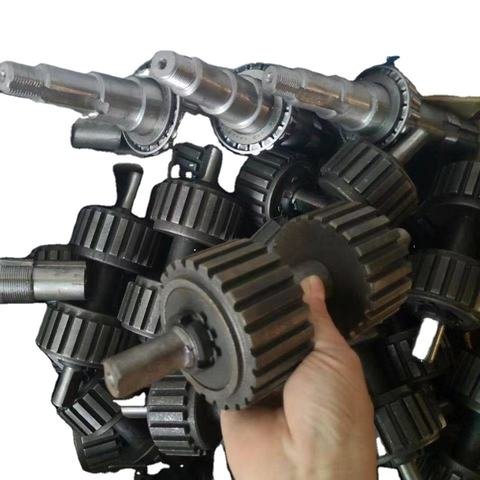
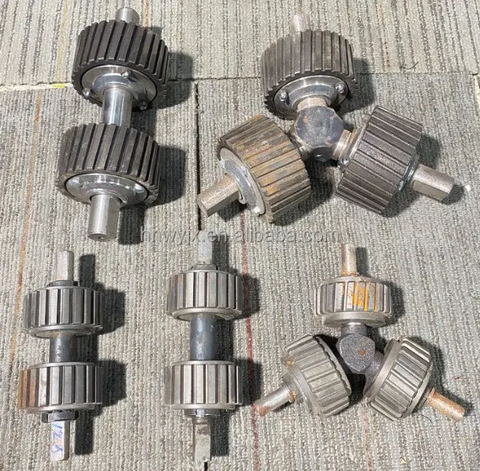
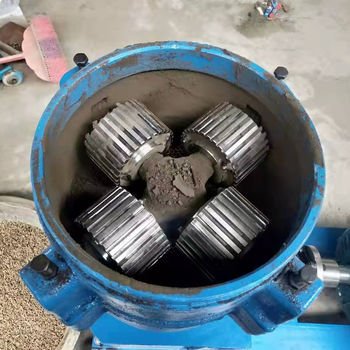
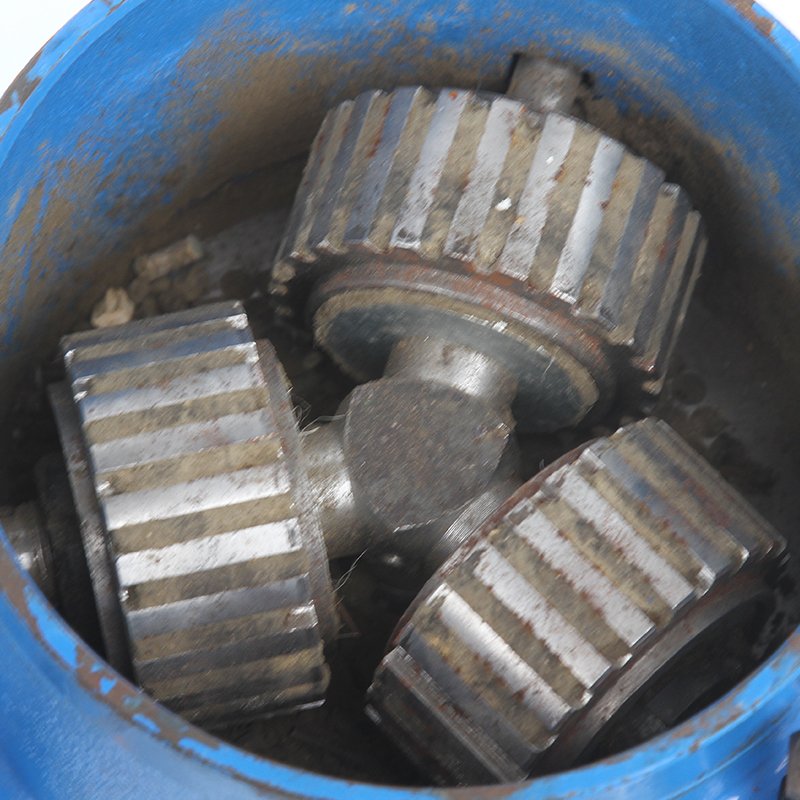
13. FAQs: Answering Nigerian Farmers’ Top Questions
Nigerian farmers often ask us practical questions before investing in poultry feed pellet machines. Here’s a detailed Q&A table addressing their top concerns:
| Question | MAIKONG’s Answer | Why It Matters |
|---|---|---|
| What power options suit my farm? | We offer electric (220V/380V), diesel, and petrol models. Diesel works best for rural areas without stable electricity. | Ensures uninterrupted production despite Nigeria’s power challenges . |
| How long does delivery take? | 2–3 weeks for Lagos/Port Harcourt ports; 1–2 days for pickup from our Abuja/Kano warehouses. | Minimizes downtime for urgent needs . |
| Are spare parts available locally? | Yes! We stock dies, rollers, and belts in Lagos, Kano, and Port Harcourt. | Reduces repair delays—no waiting for overseas shipments . |
| Can I process cassava or PKC? | Absolutely. Our machines adjust compression for high-fiber local ingredients. | Cuts costs by using Nigeria’s abundant cassava and palm kernel cake . |
| What’s the machine lifespan? | 5+ years with proper maintenance. Alloy steel dies last 2x longer than cheap models. | Long-term savings—no frequent replacements . |
| How much labor is needed? | Just 1 operator—no technical skills required. | Saves ₦25,000/month vs. manual mixing . |
| Do you offer training? | Free on-site training with purchase; video guides for remote farmers. | Ensures optimal pellet quality and machine care . |
| What’s the ROI timeline? | 6–18 months, depending on farm size. Large farms recoup costs faster . | Proven profitability—Abuja farms report 50% feed cost savings . |
| Is financing available? | Yes! We partner with Bank of Agriculture for 12-month installment plans . | Makes machines accessible to smallholders . |
| How do I troubleshoot jams? | Clear manual instructions; call 0800-MAIKONG for 24/7 support. | Quick fixes prevent production halts . |
14. Future Trends: Smart Feed Tech in Nigeria
Nigeria’s feed industry is evolving with smart technology to combat climate and cost challenges. The Resilient African Feed and Fodder Systems (RAFFS) Project by AU-IBAR and Gates Foundation (2022–2025) promotes IoT-enabled pellet machines with real-time moisture sensors and automated nutrient balancing . MAIKONG is integrating these innovations, like mobile app-controlled pelletizers, to help farmers adjust feed formulas remotely. With Nigeria’s poultry sector projected to grow 8% annually , smart tech will be key to meeting demand sustainably.
15. Why Choose MAIKONG Over Competitors?
We outperform competitors through quality, service, and local adaptation. Here’s how:
| Feature | MAIKONG Advantage | Competitor Shortfalls |
|---|---|---|
| Durability | Alloy steel dies/rollers withstand Nigeria’s tough ingredients (5+ years). | Cheap cast iron parts crack within 1–2 years . |
| Warranty | 12-month warranty covers labor and parts—no hidden fees. | Most offer only 3–6 months . |
| Local Support | 36-state technician network; <48-hour response time. | Import brands lack local repair teams . |
| Customization | Adjust pellet size (2–8mm) and power type (electric/diesel) for any farm. | One-size-fits-all models limit flexibility . |
| Cost Efficiency | ₦1.2M starting price—40% cheaper than European brands. | Overpriced for smallholders . |
| Energy Savings | Electric models use 7.5kW/hour (50% less than competitors). | Older designs waste power . |
| Spare Parts | Local warehouses stock all critical components. | Import delays of 4+ weeks . |
| Training | Free onsite training in English, Hausa, or Yoruba. | No post-sale guidance . |
| Policy Compliance | Aligns with National Animal Feed Policy for local ingredient use. | Import machines ignore Nigerian regulations . |
| Success Rate | 1,000+ Nigerian farms upgraded with our machines since 2020. | New entrants lack proven track record . |
Bottom Line: MAIKONG combines German engineering with Nigerian practicality—no other brand offers this value.
16. Contact Us to Become Our Local Distributors in Nigeria
We welcome serious business partners to join MAIKONG as authorized distributors for our premium poultry feed pellet machines across Nigeria. Here’s how to reach our sales team:
| Position | Contact Person | WhatsApp/Tel | Website | |
|---|---|---|---|---|
| Sales Consultant | Mrs. Lucy | lucy@pelletmachine.ng | +86 135 1090 7401 | https://pelletmachine.ng |
| Sales Consultant | Mr. Mark | lucy@pelletmachine.co.za | +86 191 5190 1065 | https://pelletmachine.co.za |
Why Partner with Us?
- Exclusive discounts on poultry feed pellet machines.
- Priority stock delivery to Lagos/Port Harcourt.
- Marketing & technical support for dealers.
- 1-year warranty & spare parts supply.
MAIKONG Poultry Feed Pellet Machine Accessories
Every MAIKONG machine comes with essential accessories to ensure smooth operation. Here’s what you get:
| Accessory Name | Quantity | Unit | Function |
|---|---|---|---|
| Alloy Steel Die | 1 | Piece | Determines pellet size; withstands high pressure. |
| Pressure Rollers | 2 | Set | Compresses feed into pellets; made of hardened steel. |
| Spare Belts | 2 | Set | Backup belts for motor transmission. |
| Lubrication Grease | 1 | Tube | High-temperature grease for bearings/rollers. |
| Tool Kit | 1 | Set | Includes wrenches, screwdrivers, and pliers for basic maintenance. |
| Operation Manual | 1 | Copy | Step-by-step guide in English & local languages. |
| Cutter Blade | 1 | Piece | Trims pellets to desired length. |
| Feed Hopper Extension | 1 | Piece | Increases raw material capacity for continuous production. |
| Diesel Engine Adapter | 1 | Set | Connects diesel engines to the pelletizer (for MK-260+ models). |
| Safety Guard | 1 | Piece | Protects operators from moving parts. |
MAIKONG Poultry Feed Pellet Machine Technical Specifications
Our machines are built for Nigerian farming conditions—durable, efficient, and easy to operate. Below are key technical details:
| Model | Capacity (kg/h) | Power (kW) | Pellet Size (mm) | Weight (kg) | Dimensions (mm) | Power Options | Warranty |
|---|---|---|---|---|---|---|---|
| MK-125 | 80–100 | 3 | 2–8 | 95 | 850×350×910 | Electric/Diesel | 1 year |
| MK-150 | 120–150 | 4 | 2–8 | 100 | 900×400×950 | Electric/Diesel | 1 year |
| MK-210 | 200–300 | 7.5 | 2–8 | 300 | 1000×450×960 | Electric/Diesel | 1 year |
| MK-260 | 500–600 | 15 | 2–8 | 350 | 1260×460×1150 | Diesel/PTO | 1 year |
| MK-300 | 700–800 | 22 | 2–8 | 600 | 1380×550×1250 | Diesel/PTO | 1 year |
| MK-360 | 900–1000 | 22 | 2–8 | 800 | 1600×670×1500 | Diesel/PTO | 1 year |
| MK-400 | 1200–1500 | 30 | 2–8 | 1200 | 1600×680×1450 | Diesel/PTO | 1 year |
Contact us online by Whatsapp:


